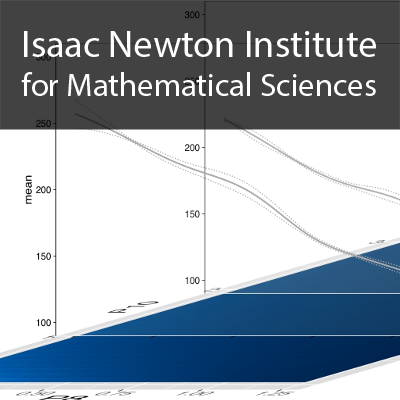Adaptive Stochastic Galerkin Finite Element Approximation for Elliptic PDEs with Random Coefficients
1 hour 8 mins,
126.08 MB,
MP3
44100 Hz,
253.14 kbits/sec
Share this media item:
Embed this media item:
Embed this media item:
About this item

| Description: |
Powell, C
Monday 5th February 2018 - 11:30 to 12:30 |
|---|
| Created: | 2018-02-06 12:56 |
|---|---|
| Collection: | Uncertainty quantification for complex systems: theory and methodologies |
| Publisher: | Isaac Newton Institute |
| Copyright: | Powell, C |
| Language: | eng (English) |
| Distribution: |
World
|
| Explicit content: | No |
| Aspect Ratio: | 16:9 |
| Screencast: | No |
| Bumper: | UCS Default |
| Trailer: | UCS Default |
| Abstract: | Co-author: Adam Crowder (University of Manchester)
We consider a standard elliptic PDE model with uncertain coefficients. Such models are simple, but are well understood theoretically and so serve as a canonical class of problems on which to compare different numerical schemes (computer models). Approximations which take the form of polynomial chaos (PC) expansions have been widely used in applied mathematics and can be used as surrogate models in UQ studies. When the coefficients of the approximation are computed using a Galerkin method, we use the term ‘Stochastic Galerkin approximation’. In statistics, the term ‘intrusive PC approximation’ is also often used. In the Galerkin approach, the resulting PC approximation is optimal in that the energy norm of the error between the true model solution and the PC approximation is minimised. This talk will focus on how to build the approximation space (in a computer code) in a computationally efficient way while also guaranteeing accuracy. In the stochastic Galerkin finite element (SGFEM) approach, an approximation is sought in a space which is defined through a chosen set of spatial finite element basis functions and a set of orthogonal polynomials in the parameters that define the uncertain PDE coefficients. When the number of parameters is too high, the dimension of this space becomes unmanageable. One remedy is to use ‘adaptivity’. First, we generate an approximation in a low-dimensional approximation space (which is cheap) and then use a computable a posteriori error estimator to decide whether the current approximation is accurate enough or not. If not, we enrich the approximation space, estimate the error again, and so on, until the final approximation is accurate enough. This allows us to design problem-specific polynomial approximations. We describe an error estimation procedure, outline the computational costs, and illustrate its use through numerical results. An improved multilevel implem entation will be outlined in a poster given by Adam Crowder. |
|---|---|
Available Formats
| Format | Quality | Bitrate | Size | |||
|---|---|---|---|---|---|---|
| MPEG-4 Video | 640x360 | 1.96 Mbits/sec | .98 GB | View | Download | |
| WebM | 640x360 | 442.76 kbits/sec | 220.52 MB | View | Download | |
| iPod Video | 480x270 | 528.72 kbits/sec | 263.33 MB | View | Download | |
| MP3 * | 44100 Hz | 253.14 kbits/sec | 126.08 MB | Listen | Download | |
| Auto | (Allows browser to choose a format it supports) | |||||

